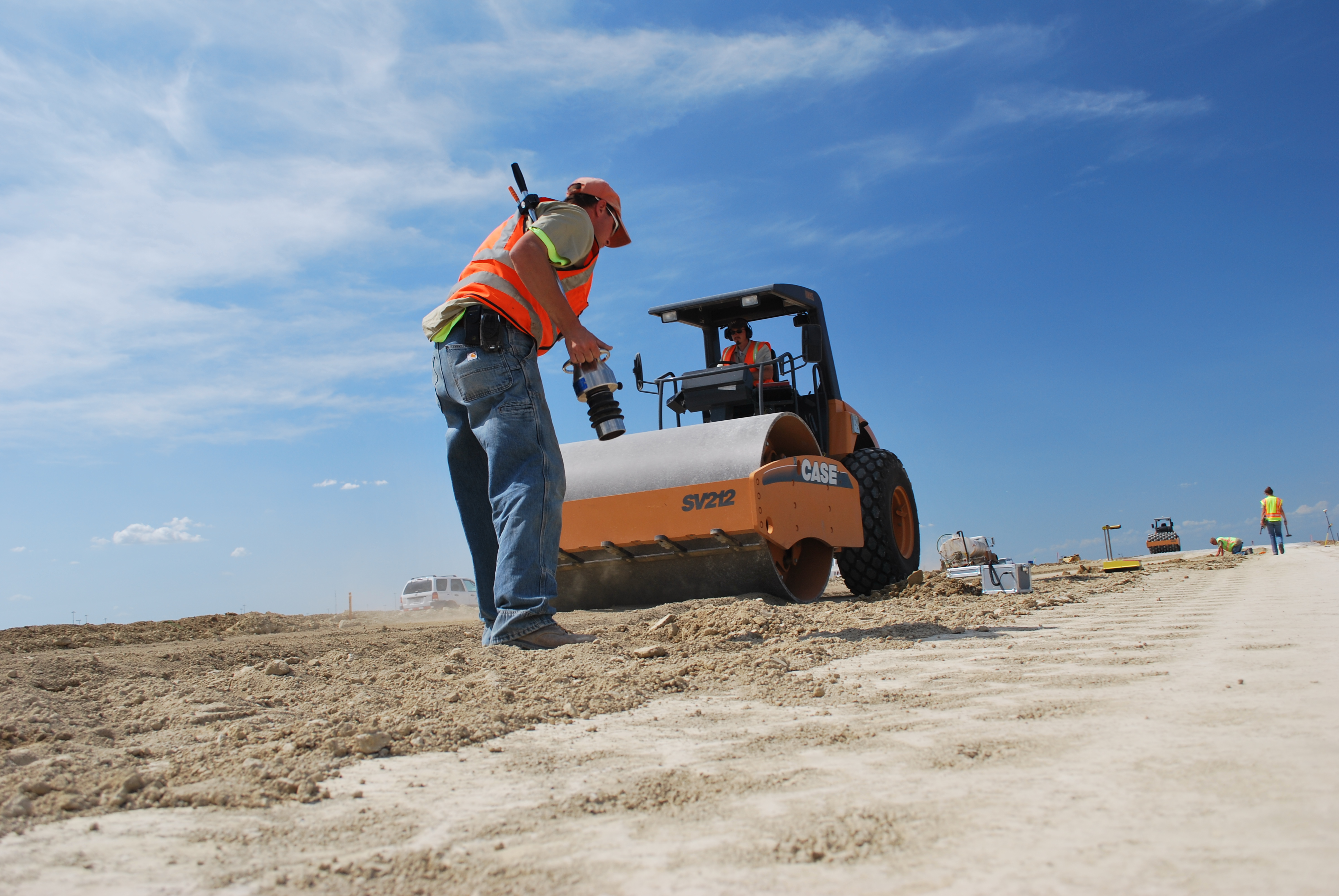What Are the Benefits of Intelligent Compaction?
Improved Density
IC technology has the potential to improve the in-place density of pavement materials – a reality that has been well documented by projects in Europe, Asia, and the United States. Most notably, IC technology can significantly reduce the variability of measured density. Since poor in-place density has been identified as a major factor in premature pavement failure, improved density of pavement materials has obvious benefits. Agencies and the public receive a better return on their monetary investment in pavements when their funds can lengthen service lives and reduce maintenance costs. By investing in IC technology, you are investing in compaction processes that can achieve these feats with consistently high and uniform material densities.
Increased Productivity
A compaction operation is most efficient when optimum density is obtained quickly by a minimum number of passes. Optimizing productivity increases the amount of roadway material that can be constructed in a typical day of production. Because IC systems are designed to operate at optimum compactive effort, compaction is more efficient. The result: equivalent or better levels of density in less time and with fewer roller passes than are typically required.
Reduction of Highway Repair Costs
Typically, the industry expects adequate pavement performance for a specific period (often 20 years) after a new pavement or pavement surface layer is constructed. Inadequate material density due to poor compaction reduces this expected service life and raises highway repair costs. By using IC, contractors can minimize repairs with an optimized compaction method intended to enhance pavement performance. Specifically, this enhanced method of achieving uniformly adequate density aims to reduce the occurrence of spot failures and improve the efficiency of compaction operations, thereby lowering costs for paving contractors, State DOTs, and the traveling public.
Continuous Record of Material Stiffness Values
IC possesses the ability to continuously measure stiffness during the compaction process – aiding in optimum compaction – and after the process as a design or acceptance tool for in-place material. This feature is an exciting development in highway engineering: possible benefits include instant identification of weak areas that need to be reworked or recompacted, the avoidance of harmful overcompaction, and potential use in design or performance specifications through integration with pavement modulus values.
Identification of Non-Compactable Areas
By comparing the results of subsequent roller passes, users of IC can conduct evaluations to determine if support from underlying materials is adequate for full compaction of the pavement material. With IC, users can identify weak spots or defective projects. This new tool is valuable to project personnel – it allows them to make an informed decision regarding the proper course of action during compaction. There are several options: removal and replacement of weak underlying materials, stabilization and recompaction of underlying materials, or modification of the compaction requirements for the specific material. Users now possess the ability to more accurately determine their project’s weak spots and assess their subsequent choices for successful compaction.
Improved Depth of Compaction
IC can increase the maximum amplitude used during initial roller passes. This feature improves upon conventional rollers by integrating measurement and control systems that optimize IC rollers’ compactive effort based on measured stiffness. Increased maximum amplitude can result in effective compaction of deeper lifts of various pavement materials. Evaluation of thick aggregate base materials in the U.S. has produced evidence to confirm the usefulness of this feature.


Learn More

What is Intelligent Compaction?

How does intelligent compaction work?
